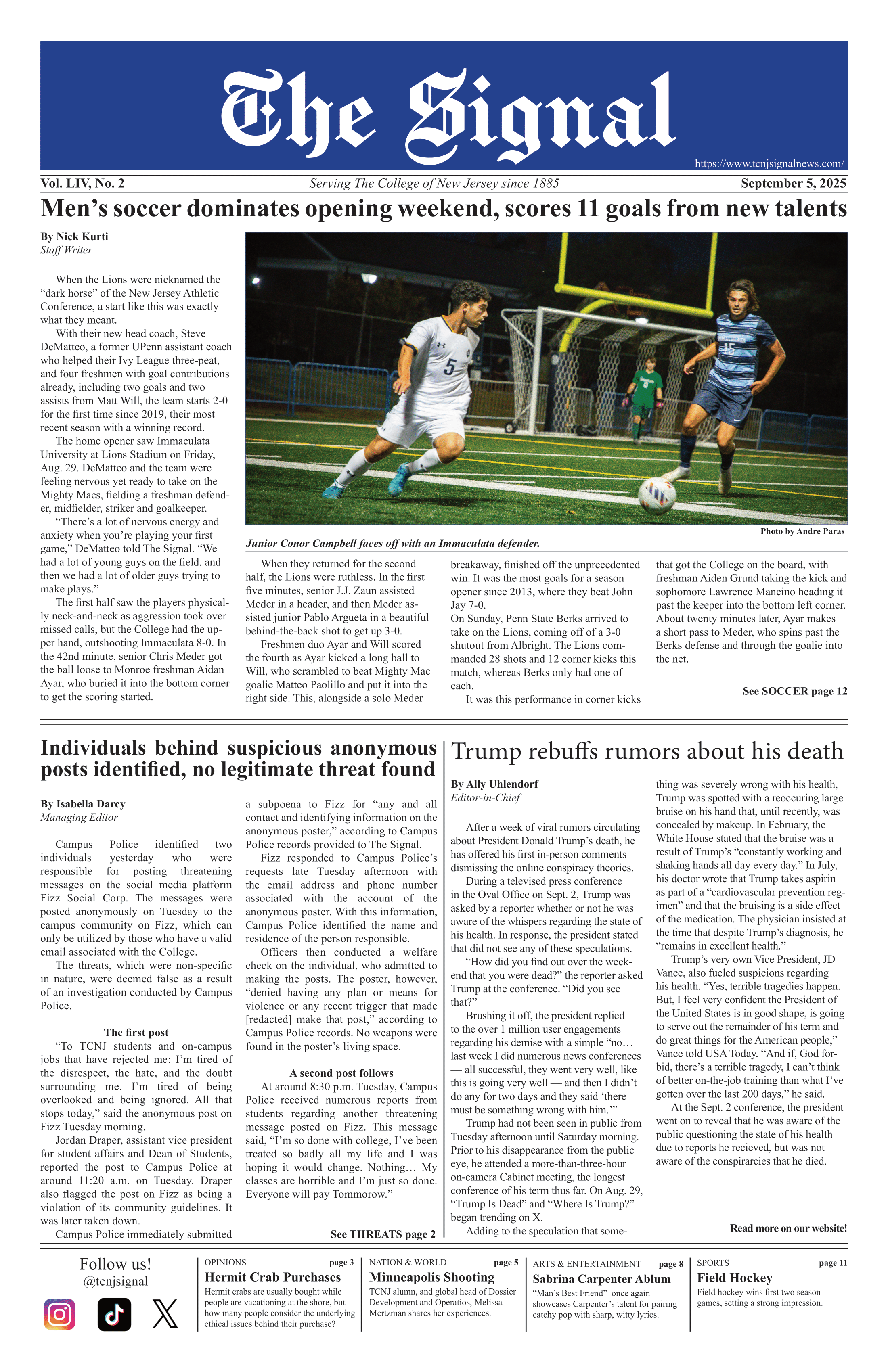Contrary to what many may think, English is not the official language of the United States. Attempts to make it so have raised questions about the future of national identity.
John Landreau, professor of Spanish and women's and gender studies, lectured at the Politics Forum Oct. 1, on the politics of the South American Indian language and related them to the present controversy over multilingualism in the United States.
According to Landreau, English predominates throughout the United States now, but, he asked, what happens if Puerto Rico becomes the 51st state? Landreau said there is substantial belief that Puerto Rico, a primarily Spanish-speaking commonwealth, will vote for statehood within the next 10 years.
Landreau said if English becomes the official language, the needs of a growing Spanish-speaking population may be jeopardized and immigration may be frowned upon.
However, if no language is declared, the government faces the pressure of providing bilingual education and the obligation to translate texts.
"The idea of national language is foundational to creating national identity," Landreau said.
Landreau described a monolingual culture in terms of a triangle, in which the linguistic norm is the focus at the tip and the various dialects and accents fill the broader area remaining.
The cultural tendency to lean toward homogeneity supports the construction of a national language through public school systems and dictionaries, according to Landreau.
Landreau connected the politics of language in the United States to those of South America, specifically in Peru, where during the late 1880s, 85 percent of the population spoke Quechua, a South American Indian language.
"The central debate was how to Peruvianize the Indian masses," Landreau said of the government's desire to make Spanish the national language because of its modernity.
"Peru was creating a nation-state where a huge majority didn't speak Spanish," he said.
Landreau referred to the studies of Jose Mar?a Arguedas, a native Quechuan speaker who learned Spanish as his second language.
Arguedas studied immigrant communities in Lima and concluded that the Peruvian language was distinct because of its mixture of the Quechuan and Spanish.
The difficulties of instituting and enforcing a national language in Peru are also present in Spain, where the natives of Barcelona insist on speaking Catalan instead of Spanish.
When Spain lost its North American empire in the early 19th century, Landreau said the country coped with its loss through "hispanism," a movement promoting the uniqueness of its culture.
"The 19th century was a time of real debate and the Hispanists in Spain were a cause of hysteria," Landreau said.
Language was a key political tool, Landreau said, because as long as Spain's former colonies continued to speak Spanish, culture conquest was still possible.
Although Landreau admitted the study of monolingual culture in Spanish-speaking countries could be considered an "arcane topic," he demonstrated its applicability to the United States and challenged his audience to consider the nation's balance between diversity and a solid identity.






